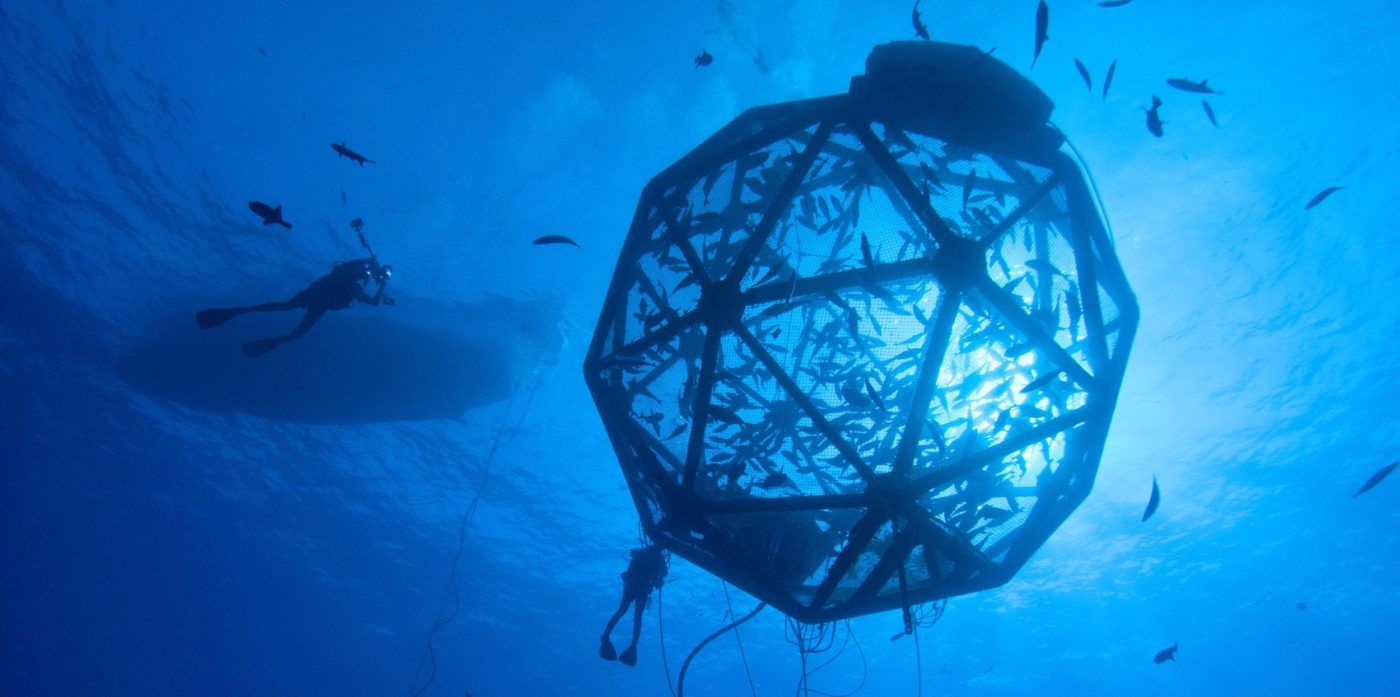No. 2: Offshore Aquaculture

Offshore fish farming utilizes the strong offshore ocean currents in the marine environment to up-cycle nutrients while simultaneously reducing contamination to coastal habitats. Another advantage of moving away from the coast into deeper offshore waters (meaning 3-200 miles off the coast in the EEZ) is the naturally occurring wave action - meaning the need for pumps, filters, and other forms of energy aren’t needed. In fact, compared to all other forms of animal production, including other aquaculture practices, offshore farms can offer the least amount of impact to the surrounding ecosystems. Scientists from the Rosenstiel School of Marine Sciences at the University of Miami studied an offshore fish farm (Open Blue) off the coast of Panama looking at impacts of pollution on a commercial scale or production. With plankton feeding on fish waste outside these cages, no significantly measurable amount of pollution was found. Dr. Aaron Welch, lead scientist of the study, found that “when [placed in the appropriate locations] – commercial scale offshore aquaculture installations have the potential to operate in a way that produces a relatively small pollution footprint. [Our] results also showed that any impacts from offshore fish farming are minimal compared to all other forms of animal protein production for human consumption.” Offshore fish farming continues to make huge strides forward and provides the potential for the US to produce a lot more sustainable protein.
Our top two examples in the US are:
1) Pacific Ocean Aqua farms off the coast of San Diego growing native California Yellowtail that thrive in the rapidly moving water column, this fish. Their product will compete with foreign sushi grade fish, thus reducing the carbon footprint of yellowtail being imported. With the farm occurring in natural species range, minimizing conflicts with other users, this company is able to grow yellowtail of premium quality with negligible environmental impacts.
2) Blue Ocean Mariculture, off the coast of Kona providing insight into the bright future of sustainable aquaculture (read our interview with them here)." Striving to be an ultra responsible example of what offshore fish farming can look like, Blue Ocean Mariculture became the first Aquaculture Stewardship Council certified finfish farm in the US. Through continuous water quality monitoring and benthic sampling, the farm ensures local sea beds are not negatively impacted. Their reports can be publicly accessed here.